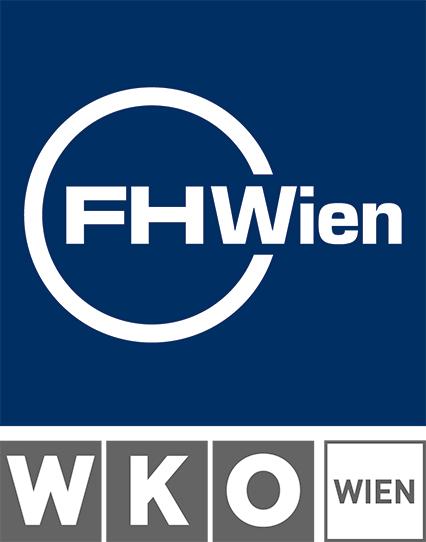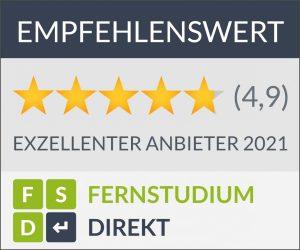3 Semesters - Entry without first degree possible - 100 % Distance Learning
MSc Cyber Psychology
of Online Communication
- 100 % distance learning
- possible without prior degree
- 3 Semesters, Study while working
- validated
Do you have questions?
+49 451 889 36 36 – 0
Get free information
Would you like to get access to our AIHE portal and additional information? We would be delighted to provide this.
MSc Cyber Psychology of Online Communication
University Partner
FHWien der WKW
In cooperation with
Enrolled
at FHWien der WKW
Tuition Fee
instead of 856.84 €/month x 18 months (VAT exempt)
now 697.53 €/month x 18 months (VAT exempt)
Total costs for 18 months:
instead of 15,423.12 € (VAT exempt)
now 12,555.54 € (VAT exempt).
AIHE GmbH does not offer any scholarships and cannot advise on country-specific funding options.
Academic Degree
| Master of Science MSc Cyber Psychology of Online Communication |
Title
Each country has different guidelines on the correct way of writing titles. Find out how you should write an austrian master’s degree in your country.
For example: Jim Morrison MSc or Jim Morrison MSc (Vienna)
Please read the FAQ
Type of Study
Distance Learning (further education course in accordance with §9 of the Austrian Federal Law on University of Applied Sciences
[Lehrgang zur Weiterbildung gemäß §9 österreichisches Bundesgesetz über Fachhochschul-Studiengänge])
Attendance
Distance learning without any physical presence (100% distance learning)
Number of Students
15 – 20 students per cohort
Programme Language
| English |
Start of studies
SS 01.03.
WS 01.09.
FINAL RUN OF THE COURSE*
Wintersemester 2023 (01.09.2023)
*Access to the learning platform, in order to be able to work ahead if you are interested, is possible immediately after signing the contract.
Application Time
SS 15.01.
WS 31.07. WS 31.08.2023
Admission Requirements
First degree (at least bachelor) from a recognised German or comparable other foreign university as well as one year of work experience
or
the equivalent of the first university degree is considered to be at least six years‘ relevant professional experience, of which at least one year must have been spent in leadership, project or high budget responsibility. A small entrance test is performed.
In addition, the following additional qualifications are welcome:
Knowledge in the field of psychology (e.g. clinical psychology, social psychology, business psychology), online related professions (e.g. IT, online advertising) and other professions in contact with cyberspace or psychology.
All those interested, whether with or without a first degree, will have a 20-minute telephone conversation to check their suitability for this Master’s programme.
Title Award
After completing the master’s dissertation award of the master’s degree by FHWien der WKW
Study location
Distance learning programme, enrolled as a student at FHWien of the WKW.
Scope
10 – 15 working hours per week
90 ECTS
Selection process
The selection process is based on the order in which applications are received, taking into account qualitative criteria and the outcome of the telephone interview.
Certification and iso 9001
This master’s programme is approved by the „Zentralstelle für Fernunterricht“ (ZFU) in Germany with the registration number: 1106720.
AIHE is certified style DIN EN ISO 9001:2015.
Registered
Ministerium für Bildung, Wissenschaft und Kultur Schleswig-Holstein
Duration
3 semesters
It is possible to pause your studies for 6 or 12 months.
Request access to our AIHE-Portal.
Get free information
Would you like to get access to our AIHE portal and additional information? We would be delighted to provide this.
Training focus of the
Master's programme
Introduction to Cyber Psychology and Personality in Cyberspace
- Basics of psychological scientific work (e.g. APA guidelines, literature research)
- History, literacy and dynamics of cyberspace
- Fundamentals of human behaviour
- Basics of cyberspace and human behaviour
- Personality online
- Identity and communication: Real-world vs. virtual
- Online behaviour and interpersonal relationships
Social Media, Networking & Communication
- Forms of social media
Social communication in cyberspace - Communication and interaction: Real-world vs. virtual
- Psychosocial characteristics of communicating in virtual groups
- Collaborative work online
- Basics of virtual and augmented reality
- Psychology of online business
Psychology of Online Business
- Big data & work
- New work environments: Trends & challenges
- Interaction of firms & consumers
- Consumer well-being
- Consumer privacy
- Big data & marketing
- Digital advertising
Online Communication, Support, Counselling & Coaching
- Addictive behaviours
- Social isolation online
- Self-presentation online
- E-therapy approaches
- E-coaching approaches
- E-counselling approaches
Children and Teenagers’ Use of Online Communication and Media
- Children interacting with the internet
- Language development in a cyber development
- Cognitive & neurocognitive factors influenced by the cyberspace
- Ethics of parenting and guardianship of young adults
Communication with Artificial Intelligence (AI)
- What is AI and what are possible trends in AI?
- Human-computer interaction
- Emotions in human-computer interaction
- Humanlike behaviour in machines and its effect on humans
- Ethics of interaction with AI
- Intimate relationships with machines
Psychology of Online Gaming and Multiplayer Platforms / Psychology of Virtual Gaming
- Classification of video games
- Serious games
- Psychology in game design: Theories and application
- Effects of video games on mental and physical health
- Usage of video games for (cognitive) training purposes
E-Politics, Ethics & Corporate Social Responsibility
- Digital footprints
- E-participation in politics
- Political control of the cyberspace: Bots, propaganda and cyberspace governance
- Organizational control of the cyberspace: Corporate social responsibility
- Legal and formal ethical guidelines
- Democracy and tolerance in cyberspace
The Dark Web – Cybercrime and Deviance
- Surface, deep and dark web
- Internet of Things
- Theories and forms of cybercrime
- Analogies of cybercrime and real-world crime
- Fighting cybercrime: Legal, ethical and practical considerations
- Trends & challenges
Research Methods
- Free selection of one of the programme’s topics
- Academic and independent research regarding this topic
- Qualitative content analysis according to Mayring
- Design of an interview guideline for the purpose of expert interviews
- Commit to a structure and a format of a master’s dissertation
- Creation of a written exposé
Master’s Dissertation
- Academic and independent research regarding the topic
- Planning and execution of expert interviews (6 x 30 minutes)
- Evaluation by using qualitative content analysis according to Mayring
- Writing the master’s dissertation abiding academic psychological standards
Master’s Oral Examination
- Presentation of one’s own master’s dissertation
Distribution of priorities
Master's Programme in detail
Scientific foundation for experienced professionals | without a first university degree
The innovative master’s programme focuses on a diverse curriculum of psychological topics set in a cyber environment. Its academic foundation enables our graduates to understand and create the latest developments in their field of profession, with a focus on the cyber world. The content covers a wide range of aspects, for instance, political, occupational and clinical view of psychology in online communication.
Development of key competences | Master’s Degree through distance learning
Students will be able to start or build on their chosen profession through an understanding of Cyber Psychology of Online Communication, and therefore be able to face future challenges and changes concerning their line of work. The distance learning format trains them in online communication and working in virtual teams – hence the content and methods in the course would overlap.
Trends and research topics of the future | Cyber Psychology of Online Communication
Researching and dealing with up-to-date advances in the topic gives the graduates the possibility to foresee coming trends in their own workplace. An appreciation of the changing world of online behaviour gained through this programme will enable students to question existing behaviours and practices and help to replace them with adjusted ones that are fit for future.

For whom has this Master’s Programme been designed?
Our target group
Freelancers
Lecturers
Therapists
Mediators
Consultants
Cyber Security Experts
Software Programmers
Game Developers
App Developers
Leaders
Heads of Department
Team Leaders
System Analysts
IT System Administrators
Project Managers
Human Resource Managers
Police and Law Enforcement Officials
Practitioners
Social counsellors
Social Psychologists
Organizational Psychologists
Start-up Company Managers
Social Scientists
Social and Care Workers
Legal Consultants
Media Specialists
Marketing and Advertising Specialists
Learning concept of the Distance Learning Programme
HIGH PRACTICAL RELEVANCE | INNOVATIVE DISTANCE LEARNING | INDIVIDUAL AND COMPETENT STUDENT SUPPORT | NO PHYSICAL PRESENCE
The learning concept of MSc Cyber Psychology of Online Communication is characterised by a high level of relevance to evidence-based content as well as innovative teaching and learning methods. The design as a pure distance learning course means optimal orientation to the needs of the target group.
The combination of guided self-study, individual student support and e-learning units offers students the possibility of learning independent of time and place, oriented to their own professional requirements and needs.
The use of modern e-learning modules guarantees students interactive learning as well as clear presentation and discussion of abstract content. Interactive Webinars and discussions in virtual space promote the integration of theoretical principles and methods into professional practice. The use of a Virtual Tutorial in the form of an online learning platform enables flexible and network-like knowledge transfer, which can be optimally varied and adapted according to individual learning needs and progress.
The provision of recordings as well as all learning material in electronic form facilitates knowledge management and asynchronous learning for students in a learning group with different professional conditions and freedom. In addition, this means simpler and time- and location-independent documentation and repetition of teaching content.
Overview of the Teaching Concept
Guided Self-Study
In contrast to a study programme with attendance or complete self-study (also: individual study), guided self-study specifies the learning content. As with individual study, teachers are not present, and the time and place of study can be freely chosen. The guided self-study, however, offers you a given thematic and temporal framework and concrete tasks, which are carried out in a self-determined learning process, but which have to be mastered in certain periods of time and in certain forms of learning and working. In addition, teachers and tutors are available to you as contact persons and to support the structuring of guided self-study. The teachers and tutors enable you to structure learning material independently in several ways, to compile suitable information and to use it for the respective requirements of your studies.
The MSc in Cyber Psychology of Online Communication of FHWien der WKW and AIHE offers you a structured framework for a self-determined learning process. In order to achieve this, comprehensive teaching material and literature as well as study papers are made available in the “virtual tutorial” on a learning platform (more detailed description under „virtual tutorial“). In addition, there is thematic and methodological support from tutors, which can be used independent of time and place using common communication media.
Virtual Tutorial
The MSc in Cyber Psychology of Online Communication of FHWien der WKW and AIHE GmbH uses the learning platform „Moodle“ for the supervision of students as well as for the structuring of their studies and for the imparting of learning content, learning material and other study-relevant information. For questions about the content of each Module, they can use the Specialist Forums, which teachers and tutors answer within 48 hours on weekdays. Furthermore, Forums can be used for exchange and organisational issues can be discussed.
All study-relevant dates and deadlines are communicated via the Virtual Tutorial. Students will be informed of each new entry directly via e-mail. All teaching material such as Study Papers, Core Literature as well as web links and other study-relevant information such as the timeline for course planning, tasks, work instructions and literature recommendations are made available digitally via the Virtual Tutorial. The Virtual Tutorial also includes individual support by teachers and tutors via e-mail on specialist and administrative issues.
Individual telephone & video consultation
The MSc in Cyber Psychology of Online Communication of FHWien der WKW and AIHE GmbH offers you the possibility of individual telephone or video consultation for the clarification and advice on professional and administrative study-related matters. You can discuss methodical and content-related questions or learning process-related matters with teachers and tutors in flexibly arranged appointments. If required, learning groups of several people can also make use of the advice of teachers and tutors in the form of a telephone or video conference.
Live Online Seminar
During the program MSc in Cyber Psychology of Online Communication of FHWien der WKW and AIHE GmbH there are many online-seminars with various contents.
In general, an online-seminar is a seminar held via the Internet which enables interaction and information exchange between teachers and learners. For the design and execution of the webinars in the Master’s Programme in Cyber Psychology of Online Communication, user-friendly software is used which offers a wide range of possibilities for information transfer and interaction. In the online-seminar, questions of contents will be deepened, discussed and applied live via video and audio, via file sharing, presentations, chat etc. The moderation is carried out by teachers and tutors.
Online-Presentations
The MSc in Cyber Psychology of Online Communication of FHWien der WKW and AIHE GmbH uses Online Lectures on selected Module content or other study-related content. These are organized via user-friendly software. Teachers and tutors explain the corresponding contents via video and audio. Students can attend the lectures live, ask questions and, in addition or as an alternative, view the Recorded Online Lectures via the Virtual Tutorial.
Recorded lectures
In our recorded online lectures, module content is explained in a lively manner and classified by the teaching staff. The recordings can be used as often as desired for repetition and consolidation. The additional provision of transcripts, and audio tracks also supports various forms of learning. Our international teaching staff inspires with competence and experience.
Would you like to apply?
The application for admission to our master’s degree program takes place in three steps.
Submit your application
Apply electronically using the application form. But before you do so, please take your time to read through the information on distance learning and estimate whether you can and want to invest approx. 10 – 15 hours a week. There will be exciting and relaxing phases, but also phases that are temporarily exhausting. Think about your personal motivation. You should be able to formulate it very clearly for yourself.
Examination
Upon receipt of your application documents, we, the AIHE, review them and send recommendations for admission to the FHWien der WKW. They will decide if and who will be admitted and inform us of their decision. We will then send you the decision of the FHWien der WKW.
Conclusion of contract
As soon as you have received an admission letter, you can conclude the student contract with us. Study places will be allocated according to the order in which applications are received after confirmation of admission. As soon as you have signed the study contract and sent it to us and a study place (limited to 50 places) is available, you will receive the signed contract back. Now your place is secured. You will be enrolled as a student at FHWien der WKW at the start of your studies and will be a student at this innovative austrian university.
University Partner
This course is carried out in conjunction with the FHWien of WKW.
FHWien of WKW:
The FHWien of WKW is Austria's leading university of applied sciences for management and communication.
The decisive factor for the cooperation between AIHE GmbH and FHWien der WKW is the practice-oriented design of the course programmes. The practical relevance of the teaching is a top priority at the FHWien. The practically orientated training is supported by close cooperation with companies from different industries and teachers directly from the business world.



